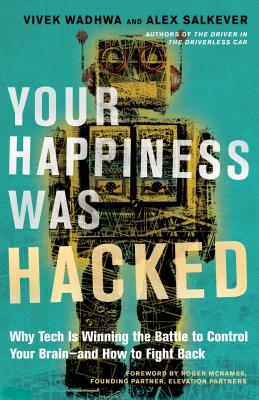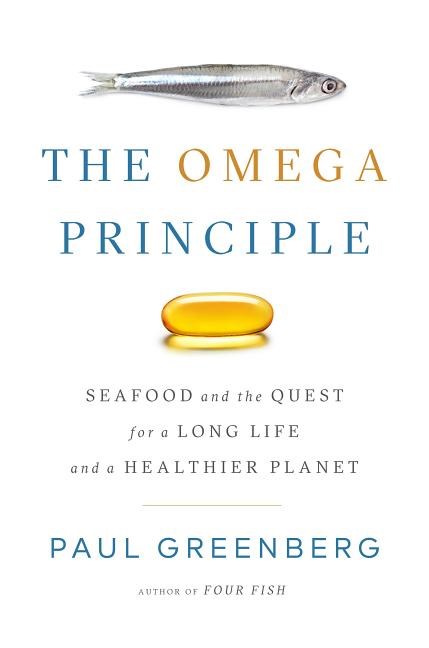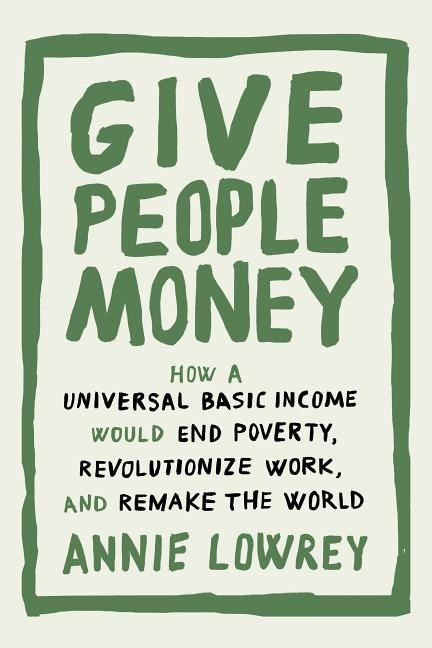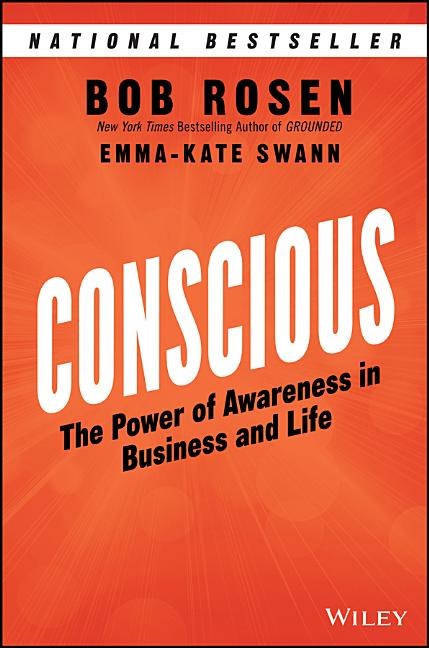Business Books to Watch in July
July 09, 2018
12 books being published in July (with one gem we missed pulled in from late June) that we'll be focusing our attention on over the course of the month.
These are 12 books being published in July (with one gem we missed pulled in from late June) that we'll be focusing our attention on over the course of the month.
 Your Happiness Was Hacked: Why Tech Is Winning the Battle to Control Your Brain—and How to Fight Back by Vivek Wadhwa & Alex Salkever, Berrett-Koehler
Your Happiness Was Hacked: Why Tech Is Winning the Battle to Control Your Brain—and How to Fight Back by Vivek Wadhwa & Alex Salkever, Berrett-Koehler
Technology: your master, or your friend?
Do you feel ruled by your smartphone and enslaved by your e-mail or social-network activities? Digital technology is making us miserable, say bestselling authors and former tech executives Vivek Wadhwa and Alex Salkever. We’ve become a tribe of tech addicts—and it’s not entirely our fault.
Taking advantage of vulnerabilities in human brain function, tech companies entice us to overdose on technology interaction. This damages our lives, work, families, and friendships. Swipe-driven dating apps train us to evaluate people like products, diminishing our relationships. At work, we e-mail on average 77 times a day, ruining our concentration. At home, light from our screens is contributing to epidemic sleep deprivation.
But we can reclaim our lives without dismissing technology. The authors explain how to avoid getting hooked on tech and how to define and control the roles that tech is playing and could play in our lives. And they provide a guide to technological and personal tools for regaining control. This readable book turns personal observation into a handy action guide to adapting to our new reality of omnipresent technology.
 The Omega Principle: Seafood and the Quest for a Long Life and a Healthier Planet by Paul Greenberg, Penguin Press
The Omega Principle: Seafood and the Quest for a Long Life and a Healthier Planet by Paul Greenberg, Penguin Press
By the bestselling author of Four Fish and American Catch, an eye-opening investigation of the history, science, and business behind omega-3 fatty acids, the “miracle compound” whose story is intertwined with human health and the future of our planet.
Omega-3 fatty acids have long been celebrated by doctors and dieticians as key to a healthy heart and a sharper brain. In the last few decades, that promise has been encapsulated in one of America’s most popular dietary supplements. Omega-3s are today a multi-billion dollar business, and sales are still growing apace—even as recent medical studies caution that the promise of omega-3s may not be what it first appeared.
But a closer look at the omega-3 sensation reveals something much deeper and more troubling. The miracle pill is only the latest product of the reduction industry, a vast, global endeavor that over the last century has boiled down trillions of pounds of marine life into animal feed, fertilizer, margarine, and dietary supplements. The creatures that are the victims of that industry seem insignificant to the untrained eye, but turn out to be essential to the survival of whales, penguins, and fish of all kinds, including many that we love to eat.
Behind these tiny molecules is a big story: of the push-and-pull of science and business; of the fate of our oceans in a human-dominated age; of the explosion of land food at the expense of healthier and more sustainable seafood; of the human quest for health and long life at all costs. James Beard Award-winning author Paul Greenberg probes the rich and surprising history of omega-3s—from the dawn of complex life, when these compounds were first formed; to human prehistory, when the discovery of seafood may have produced major cognitive leaps for our species; and on to the modern era, when omega-3s may point the way to a bold new direction for our food system. With wit and boundless curiosity, Greenberg brings us along on his travels—from Peru to Antarctica, from the Canary Islands to the Amalfi Coast—to reveal firsthand the practice and repercussions of our unbalanced way of eating.
Rigorously reported and winningly told, The Omega Principle is a powerful argument for a more deliberate and forward-thinking relationship to the food we eat and the oceans that sustain us.
 Getting Things Done for Teens: Take Control of Your Life in a Distracting World by David Allen, Mike Williams, and Mark Wallace, Penguin Books
Getting Things Done for Teens: Take Control of Your Life in a Distracting World by David Allen, Mike Williams, and Mark Wallace, Penguin Books
An adaptation of the business classic Getting Things Done for teenage readers.
The most interconnected generation in history is navigating unimaginable amounts of social pressure, both in personal and online interactions. Very little time, focus, or education is being spent teaching and coaching this generation how to navigate this unprecedented amount of “stuff” entering their lives each day. How do we help the overloaded and distracted next generation deal with increasing complexity and help them not only survive, but thrive? How do we help them experience stress-free productivity and gain momentum and confidence? How do we help them achieve autonomy, so that they can confidently take on whatever comes their way?
Getting Things Done for Teens will train the next generation to overcome these obstacles and flourish by coaching them to use the internationally renowned Getting Things Done methodology. In its two editions, David Allen’s classic has been translated into dozens of languages and sold over a million copies, establishing itself as one of the most influential business books of its era, and the ultimate book on personal organization. Getting Things Done for Teens adapts its lessons by offering a fresh take on the GTD methodology, framing life as a game to play and GTD as the game pieces and strategies to play your most effective game. It presents GTD in a highly visual way and frames the methodology as not only as a system for being productive in school, but as a set of tools for everyday life.
Getting Things Done for Teens is the how-to manual for the next generation—a strategic guidebook for creating the conditions for a fruitful and effective future.
 Leading With Emotional Courage: How to Have Hard Conversations, Create Accountability, And Inspire Action On Your Most Important Work by Peter Bregman, Wiley
Leading With Emotional Courage: How to Have Hard Conversations, Create Accountability, And Inspire Action On Your Most Important Work by Peter Bregman, Wiley
The Wall Street Journal bestselling author of 18 Minutes unlocks the secrets of highly successful leaders and pinpoints the missing ingredient that makes all the difference.
You have the opportunity to lead: to show up with confidence, connected to others, and committed to a purpose in a way that inspires others to follow. Maybe it’s in your workplace, or in your relationships, or simply in your own life. But great leadership—leadership that aligns teams, inspires action, and achieves results—is hard. And what makes it hard isn’t theoretical, it’s practical. It’s not about knowing what to say or do. It’s about whether you’re willing to experience the discomfort, risk, and uncertainty of saying or doing it. In other words, the most critical challenge of leadership is emotional courage. If you are willing to feel everything, you can do anything.
Leading With Emotional Courage, based on the author’s popular blogs for Harvard Business Review, provides practical, real-world advice for building your emotional courage muscle. Each short, easy to read chapter details a distinct step in this emotional “workout,” giving you grounded advice for handling the difficult situations without sacrificing professional ground. By building the courage to say the necessary but difficult things, you become a stronger leader and leave the “should’ves” behind.
Theoretically, leadership is straightforward, but how many people actually lead? The gap between theory and practice is huge. Emotional courage is what bridges that gap. It’s what sets great leaders apart from the rest. It gets results. It cuts through the distractions, the noise, and the politics to solve problems and get things done. This book is packed with actionable steps you can take to start building these skills now, like how to:
- Have the courage to speak up when others remain silent.
- Be stable and grounded in the face of uncertainty.
- Respond productively to opposition without getting distracted.
- Weather others’ anger without shutting down or getting defensive.
Leading With Emotional Courage coaches you to build your emotional courage, exercise it effectively, and create an environment in which people around you take accountability to get hard things done.
 Powered by Change: How to Design Your Business for Perpetual Success by Jonathan MacDonald, Nicholas Brealey
Powered by Change: How to Design Your Business for Perpetual Success by Jonathan MacDonald, Nicholas Brealey
We all accept that change is the only constant, yet there is a significant lack of insight into how to think and act in a way that capitalizes on a constantly changing environment.
In a hectic business environment where it is estimated that half of the decisions that CEOs make turn out to be wrong, the stark reality is that it has never been harder to see what's happening around us, interpret information efficiently, and develop strategies that are executed in a successful way.
This is partly due to the speed of change, and also to the mindset about change that is common amongst large and small companies. To them, change is seen as the enemy. This book proposes a role reversal and gives people a brand new methodology as a practical guide in how to use change as a fueling mechanism to generate outstanding business success.
Powered by Change helps leaders adopt a more radical view about the way business is done. The Windmill is constructed using four blades: Purpose, People, Product, and Process. Getting these four blades to work in harmony with one another leads to an empowered business that can use the winds of change to fuel business success.
Powered by Change is filled with examples and stories from around the world, including global corporates and start-up ventures, alongside colorful insights and, above all, actionable steps to take to achieve competitive advantage. Key topics include change, innovation, leadership, strategy, and futureproofing.
 Valley of Genius: The Uncensored History of Silicon Valley (As Told by the Hackers, Founders, and Freaks Who Made It Boom) by Adam Fisher, Twelve
Valley of Genius: The Uncensored History of Silicon Valley (As Told by the Hackers, Founders, and Freaks Who Made It Boom) by Adam Fisher, Twelve
A candid, colorful, and comprehensive oral history that reveals the secrets of Silicon Valley—from the origins of Apple and Atari to the present day clashes of Google and Facebook, and all the start-ups and disruptions that happened along the way.
Rarely has one economy asserted itself as swiftly—and as aggressively—as the entity we now know as Silicon Valley. Built with a seemingly permanent culture of reinvention, Silicon Valley does not fight change; it embraces it, and now powers the American economy and global innovation.
So how did this omnipotent and ever-morphing place come to be? It was not by planning. It was, like many an empire before it, part luck, part timing, and part ambition. And part pure, unbridled genius...
Drawing on over two hundred in-depth interviews, Valley of Genius takes readers from the dawn of the personal computer and the internet, through the heyday of the web, up to the very moment when our current technological reality was invented. It interweaves accounts of invention and betrayal, overnight success and underground exploits, to tell the story of Silicon Valley like it has never been told before. Read it to discover the stories that Valley insiders tell each other: the tall tales that are all, improbably, true.
 The King of Content: Sumner Redstone's Battle for Viacom, CBS, and Everlasting Control of His Media Empire by Keach Hagey, Harper Business
The King of Content: Sumner Redstone's Battle for Viacom, CBS, and Everlasting Control of His Media Empire by Keach Hagey, Harper Business
The remarkable story of Sumner Redstone, his family legacy, and the battles for all he controls.
Sumner Murray Redstone, who lived by the credo “content is king,” leveraged his father’s chain of drive-in movie theaters into one of the world’s greatest media empires through a series of audacious takeovers designed to ensure his permanent control. Over the course of this meteoric rise, he made his share of enemies and feuded with nearly every member of his family.
In The King of Content, Keach Hagey deconstructs Redstone’s rise from Boston’s West End through Harvard Law School to the highest echelons of American business. Today the ninety-five-year-old mogul’s life has become a tabloid soap opera, the center of acrimonious legal battles throughout his vast holdings, which include Paramount Pictures and two of the largest public media companies, Viacom and CBS. At the heart of these lawsuits is Redstone’s tumultuous love life and complicated relationship with his children. Redstone’s daughter, Shari, has emerged as his de facto successor, but only after she ousted his closest confidant in a fierce power struggle.
Yet Redstone’s assets face an existential threat that goes beyond his family, disgruntled ex-girlfriends, or even the management of his companies: the changing nature of media consumption. As more and more people cut their cable cords, CBS, with its focus on sports and broadcast TV, has held steady, while Viacom, with its once-great cable channels like MTV and Nickelodeon, has suffered a precipitous fall. As their rivals merge, the question is whether Shari’s push to undo her father’s last big strategic maneuver and recombine CBS and Viacom will be enough to shore up their future.
A biography and corporate whodunit filled with surprising details, The King of Content investigates Redstone’s impact on business and popular culture, as well as the family feuds, corporate battles, and questionable alliances that go back decades—all laid bare in this authoritative book.
 Like She Owns the Place: Give Yourself the Gift of Confidence and Ignite Your Inner Magic by Cara Alwill Leyba, Portfolio
Like She Owns the Place: Give Yourself the Gift of Confidence and Ignite Your Inner Magic by Cara Alwill Leyba, Portfolio
From the woman who has built an empire of badass female entrepreneurs comes the long-awaited sequel to Girl Code.
Cara Alwill Leyba’s riveting voice and kinship with her audience drove the self-published success of Girl Code, a book that encouraged women to support each other in the business community. Now her many fans are ready to take the next step: building sustainable confidence from the ground up.
Most women who are insecure look for the equivalent of a sugar rush, such as telling themselves they’re better than other people or changing the way they look. But those tricks won’t protect them from losing confidence in the future. Neither will simply being outspoken and aggressive, if those traits aren’t authentic.
Leyba has three simple but provocative arguments. First, confidence doesn’t come from “winning”—it comes comes from ignoring the success narratives we absorb from magazines and movies. Second, the impressions people make on others depend on their personalities, not their looks—so there’s no reason to use the word “ugly,” ever. Finally, the foundation of confidence comes from “audacious auditing,” Leyba’s term for identifying toxic people and habits and getting rid of them.
Written in her chatty, older-sister voice, and full of revealing stories from every stage of Cara’s life, Like She Owns the Place will help readers rewire their minds to be more confident. Take it from the woman who quit her job at MTV, dyed her hair pink, and made herself a bestselling author—there’s a path becoming stronger and happier.
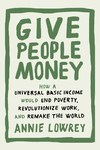 Give People Money: How a Universal Basic Income Would End Poverty, Revolutionize Work, and Remake the World by Annie Lowrey, Crown
Give People Money: How a Universal Basic Income Would End Poverty, Revolutionize Work, and Remake the World by Annie Lowrey, Crown
A brilliantly reported, global look at universal basic income—the idea of giving every citizen an annual stipend, no questions asked—and why, in an age of rapid automation, it might just be our best hope.
The second industrial revolution is coming. Advances in artificial intelligence are about to cause the greatest social upheaval we’ve seen in centuries. Within the next decade, 3.5 million truck drivers will likely be replaced by self-driving trucks. Factory workers, even many white-collar professionals, will be replaced by robots. What can we do when there’s less work in the future? Surprisingly, an idea first championed by Thomas Paine has been revived by an unlikely group of Bernie leftists, feminists, union organizers, Nobel Prize-winning economists, Charles Murray-style conservatives, and Silicon Valley libertarians. It can be summed up in three simple words: give people money. Attach as few strings as possible. Promise it to anyone whose income falls below a certain level, for whatever reason. Or better yet, just give it to everyone.
In this sparkling and informative book, economics writer Annie Lowrey gives us the first thoroughly reported, global investigation of universal basic income (UBI), which many economists believe could end decades of income inequality and restore social stability and mobility. Lowrey travels to Korea, Kenya, Finland, and many other places to reveal the promises and challenges of UBI, and the prospects for a country like the United States. What’s clear is that millions of lives will soon be upended, and doing nothing is no longer an option. Give People Money paints a terrifying, possibly exhilarating picture of how the future could unfold.
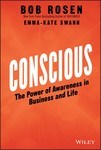 Conscious: The Power of Awareness in Business and Life by Bob Rosen & Emma-Kate Swann, Wiley
Conscious: The Power of Awareness in Business and Life by Bob Rosen & Emma-Kate Swann, Wiley
Conscious is a deeply human approach to personal change.
Our world is changing faster than our ability to adapt. Ambushed by speed, complexity, and uncertainty, many of us are unprepared for this acceleration. We act on autopilot as new challenges confront us. We are too reactive to problems and miss out on opportunities. We get hijacked by conflicting values and polarizing relationships. We face uncertainty with fear and mistrust. Stress and burnout are pervasive as many of us do not perform up to our potential.
Organizations are not adapting well either. Seventy percent of change efforts fail. Slow execution, unrealized growth, unhealthy cultures, and obsession with short-term results undermine long-term success. Inside communities, there is more tension, diminishing trust in our institutions, and a growing inability to solve our most complex social problems. The primary culprit for these maladies is our lack of awareness.
Let’s face it: Our current approach to change is running out of steam. And the cost of unaware people is too high to pay. In this age of acceleration, we need a fresh approach to living and leading.
Conscious is our wake-up call—to be aware, awake, and accountable. Nothing is more important than understanding ourselves, our relationships, and our surroundings. Being conscious helps us think deeper, learn faster, and collaborate better. The more conscious we are, the faster we adapt, and the higher performing we become. Being conscious is the new smart.
As one of the premier global experts on leadership and transformation, Bob Rosen and Healthy Companies have revealed a profound truth about modern-day change: the most successful people, at all levels of society, follow four powerful practices of being conscious:
- Go Deep – Discover your inner self
- Think Big – See a world of possibilities
- Get Real – Be honest and intentional
- Step Up – Act boldly and responsibly
Conscious is your personal roadmap through transformation—helping you adapt and accelerate into the future, to create sustainable change for yourself and your business. Why not be the one with your head lights on while others are driving in the dark?
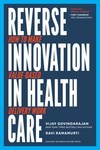 Reverse Innovation in Health Care: How to Make Value-Based Delivery Work by Vijay Govindarajan & Ravi Ramamurti, Harvard Business Review Press
Reverse Innovation in Health Care: How to Make Value-Based Delivery Work by Vijay Govindarajan & Ravi Ramamurti, Harvard Business Review Press
Health-Care Solutions from a Distant Shore.
Health care in the United States and other nations is on a collision course with patient needs and economic reality. For more than a decade, leading thinkers, including Michael Porter and Clayton Christensen, have argued passionately for value-based health-care reform: replacing delivery based on volume and fee-for-service with competition based on value, as measured by patient outcomes per dollar spent.
Though still a pipe dream here in the United States, this kind of value-based competition is already a reality—in India. Facing a giant population of poor, underserved people and a severe shortage of skills and capacity, some resourceful private enterprises have found a way to deliver high-quality health care, at ultra-low prices, to all patients who need it. This book shows how the innovations developed by these Indian exemplars are already being practiced by some far-sighted US providers—reversing the typical flow of innovation in the world.
Govindarajan and Ramamurti, experts in the phenomenon of reverse innovation, reveal four pathways being used by health-care organizations in the United States to apply Indian-style principles to attack the exorbitant costs, uneven quality, and incomplete access to health care. With rich stories and detailed accounts of medical professionals who are putting these ideas into practice, this book shows how value-based delivery can be made to work in the United States. This "bottom-up" change doesn't require a grand plan out of Washington, DC, agreement between entrenched political parties, or coordination among all players in the health-care system. It needs entrepreneurs with innovative ideas about delivering value to patients. Reverse innovation has worked in other industries. We need it now in health care.
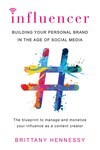 Influencer: Building Your Personal Brand in the Age of Social Media by Brittany Hennessy, Citadel
Influencer: Building Your Personal Brand in the Age of Social Media by Brittany Hennessy, Citadel
If you’ve ever scrolled through your Instagram feed and thought, I wear clothes, eat avocado toast, and like sunsets, why can’t someone pay me to live my best life? this book is for you…
Every one of your favorite influencers started with zero followers and had to make a lot of mistakes to get where they are today—earning more money each year than their parents made in the last decade. But to become a top creator, you need to understand the strategies behind the Insta-ready lifestyle…
As nightlife blogger, then social media strategist, and now Senior Director of Influencer Strategy and Talent Partnerships at Hearst Magazines Digital Media, Brittany Hennessy has seen the role of influencers evolve and expand into something that few could have imagined when social media first emerged. She has unrivaled insight into where the branded content industry was, where it is, and where it’s going. In this book she’ll reveal how to:
- Build an audience and keep them engaged
- Package your brand and pitch your favorite companies
- Monetize your influence and figure out how much to charge
Plus tips on:
- Landing an agent
- Getting on the radar of your favorite sites
- Praising a brand without alienating their competitors
Whether you’re just starting out or you’re ready for bigger campaigns, Hennessy guides you through core influencer principles. From creating content worth double tapping and using hashtags to get discovered, to understanding FTC rules and delivering metrics, she’ll show you how to elevate your profile, embrace your edge, and make money—all while doing what you love.


